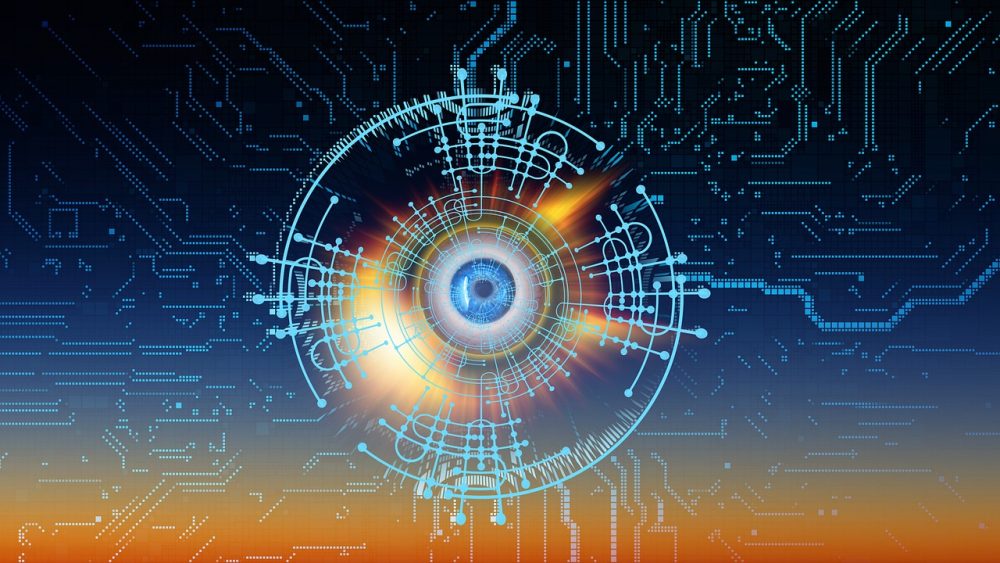
Neuroticism or new normal?
Can people really think for themselves, or do we live in a system where we are all indoctrinated to think alike, whether through the schooling system or other educational systems? We can’t deny that we live in a society where people become conformists and perhaps not from a conscious choice but because we have a mass media that makes sure we fear the same things, an advertising industry that makes sure we like and buy the same things, and last but not least, a social media that makes it easy to question our value and shame those who dare to step out of line. In this so-called advanced world, there are many psychological disorders that people can suffer from, and while they may not always be fatal, people are unaware as to what extent it impacts their individual lives as well as society at large. According to statistics, there are actually high levels of neurotic illness, and from a psychological stance, psychiatrist Carl Jung found a connection between too much conformity and neurotic illness. He found that being too conformist can actually lead to neurosis. In psychology, neurosis is a disorder characterized mainly by having an overall fear of life accompanied by deep levels of anxiety, and in addition, we can find other symptoms such as depression, phobias, obsessions, excessive worry, etc.
According to Carl Jung, neurosis, the agony of a human soul in all its vast complexity, is triggered by three conditions. Firstly an individual is confronted with a challenge, task, or problem in an important domain of life. Secondly, because of cowardice, laziness, self-doubt, or just plain stupidity, the individual avoids the challenge rather than facing up to it. Thirdly, the use of defense mechanisms to force the problem out of conscious awareness. Common defense mechanisms include repressing thoughts, displacing emotions, projecting one’s problems onto another person, compulsive activity to keep one distracted, self-medicating into a numbed-out state, or avoiding situations that trigger awareness of one’s problem. A neurosis destroys our potential while placing us in the constricting confines of an ever-shrinking comfort zone. It fills us with guilt and sadness for a life not lived, ruins relationships, inhibits the cultivation of skills, and damages our physical health due to the effects of chronic fear, anxiety, and depression on the body. Does all this sound too familiar to you when looking back at 2020?
Raising a conformist

What we seem to forget about is the children of our future societies. It is our responsibility to raise newer generations without the ignorance, fear, and phobias of our past. It is our responsibility to raise children that will not become conformist in uncertain times and in the midst of danger, but elevate them to transcend our innate dispositions based on survival and fear. Otherwise, the repercussions and dangers of such behavior are alarming for the future, to say the least. In psychology, it is the parents who enable and pass on to their children a neurotic approach to life. Children imitate and adopt an overall fear of life of the neurotic parent and, from an early age, learn to avoid life’s problems. This, again, can only lead to becoming conformist.
“The psychic disorders of children are more often than not causally connected with the psychology of the parents, and in most cases, one would do well to pay more attention to the faulty attitude of parents and educators than to the child’s psyche, which in itself would function correctly if it were not disturbed by the harmful influence of the parents. -Carl Jung.” Social forces are also promoting passivity and avoidance when it comes to life’s problems which lead to high levels of neurosis, like addictive technologies and paternalistic governments that hinder the cultivation of self-responsibility and a moral system that no longer elevates the virtues of courage and self-reliance. The problem being avoided by neurotics is not to be found in the outer world but in the inner world of the psyche because they are afraid of their individuality and fail to realize the call of their conscience to develop the distinctive side of their nature. .
Conformist by choice?

We have to remember that the development of the individual side of our nature is just as imperative as our collective development, and a failure to differentiate ourselves from others will only make us too normal, too conformist, and neurotic. As Carl Jung writes: “There are large numbers of people for whom the development of individuality is the prime necessity, especially in a cultural epoch like ours, which is literally flattened out by collective norms. In my experience, there are very many for whom the development of individuality is an indispensable requirement.” Carl Jung on Psychic Energy: To be healed, the all-too-normal neurotic must experience a symbolic death, or the letting go of much that is familiar and comfortable, so the individualistic side of his nature can emerge. From Symbols of Transformation: That the highest summit of life can be expressed through the symbolism of death is a well-known fact, for any growing beyond oneself means death. Character traits, relationships, career choices, and especially habits of thought and behavior, many of these must be sacrificed to permit the birth of the new.
Replacing the norms of the Enlightenment with new norms | Creating a new normal

The Enlightenment was a movement in the 17th and 18th centuries that emphasized science above blind faith and reason above superstition, aspects that were not social norms at the time. The central doctrines of the Enlightenment were individual liberty and religious tolerance, in opposition to an absolute monarchy and the fixed dogmas of the Church. The Enlightenment included a range of ideas centered on the value of human happiness, the pursuit of knowledge obtained by means of reason and the evidence of the senses, and ideals such as natural law, liberty, progress, toleration, fraternity, constitutional government, and separation of church and state.
Since 2020, there has been a concerted effort by intellectuals and academics to replace the norms of the Enlightenment with new norms, in other words, to create a new normal. This has already happened in certain institutions but has not overtaken all of society yet. The question is if the values they are trying to replace are a better set of values than those we already know. Because what they’ve tried to do is equate the values of meritocracy and the Enlightenment with “whiteness,” even though a glance at society and the world shows that these are values that are shared by people of every race. There’s no color to meritocracy, valuing objective truth, valuing reason, and moral progress.
Should we conform to the people that want to create new norms out of values that will lead to a far darker and less just society than that which we know? And why are there forces or parts of society that want to overthrow Enlightenment values and install this much more zero-sum world? Are they well-meaning but deluded, or is there an ulterior motive? What we can do is simply assume it is well-meaning but deluded until proven otherwise. We can’t deny that people believe all kinds of things. Religion is a prime example, and most beliefs are sincerely held, however misguided they may be. For instance, if the history of communism is any indication, the road to hell is paved with good intentions. Just because something is well-intentioned, it doesn’t mean we should conform. It’s often the well-intentioned ideas that cause the most harm. What ideas killed the most people in the 20th century? By numbers communism. And we can’t deny that there were millions of people who were sincere in their beliefs and conformist by nature, but it was still horrible.
Daily living of the things we believe | Repercussion of excessive worry

We all have principles and ideals we like to live by, but we can’t deny that, at times, we are still in trouble because we are unable to escape from certain habit patterns. A large percentage of people have strong convictions according to their traditions and background, which are essentially idealistic, although based on some facts. And we know very well that facts do not change quickly or easily. During these rapid times of transformation and progress in different fields, including scientific progress, we do not want to re-establish the foundation of survival. If we are to establish certain rules, but they come in conflict with personal interests, we forget the traditional integrity that is at the basis of our civilization. Every leader, philosopher, or teacher of the past has brought us traditional integrity. They have all done their best to call to our attention the realities of values. Although we have tried to listen to them, in most cases, they were persecuted and martyred. But out of it all came a stream of ideals that refused to die. These ideals were the integrities upon which modern life has been built. But as we have seen since 2020, integrities often interfere with selfishness. We can’t deny that we were confronted by a complicated situation that was disturbing and frightening for millions of human beings.
Everyone was disturbed, but some of us were very much disturbed, to say the least. We were very much disturbed by what seemed to be a complete collapse of a social system as we knew it, the failure of a political system, the disabilities of our economic structure, and the continual danger to the sovereignty and life of the individual beginning with the first amendment being broken. This is something that is bound to cause anxiety and a continually increasing negative approach to circumstances. What we have to realize is that these happenings are not accidents. The problems we face are the problems we have caused. And whether they were caused by our ancestors and that we may lead them to our descendants, these do not alter the basic fact that man or woman is the cause of his or her own trouble. Now, the only cure for the problems we cause is through a change of approach to existence. And of course, we would like to appoint someone to do this, to think for us and to have the authority to help other people to see the light. Still, to this day, we have a desire for a heroic personality to save the day. And while this is very unlikely to happen, we must at least become aware that if we worry and are filled with anxiety, we are already on the way toward becoming sick.
So worry was not the answer because it is only a means of complicating the difficulty. The problem of constant worry, fearing everything that happens, mistrusting everyone, and being in a state of perpetual criticism and hate is not the answer. The proof of that is that it is solving nothing but making us sick. Therefore we should begin to think in terms of how to act so that we will not be sick. The solutions to the problem lie not only in our fears and anxieties but in the solution to the causes of these fears and anxieties. The only way we can stop worrying, stop fearing, and stop hating is to put discipline upon ourselves. Obviously, we cannot prevent the world from worrying, but we can become detached from the worrying set. We can become self-sufficient to our own needs. This does not mean selfishness, and it does not mean that we are not mindful or willing to assist in the solution of the problems of others, but it means before we help other people, we must find an answer that will work for ourselves. There is simply no use in sharing the worries, and there is no use in trying to find new worries in everything that happens in life because it can only make us more neurotic, hence conformist.

